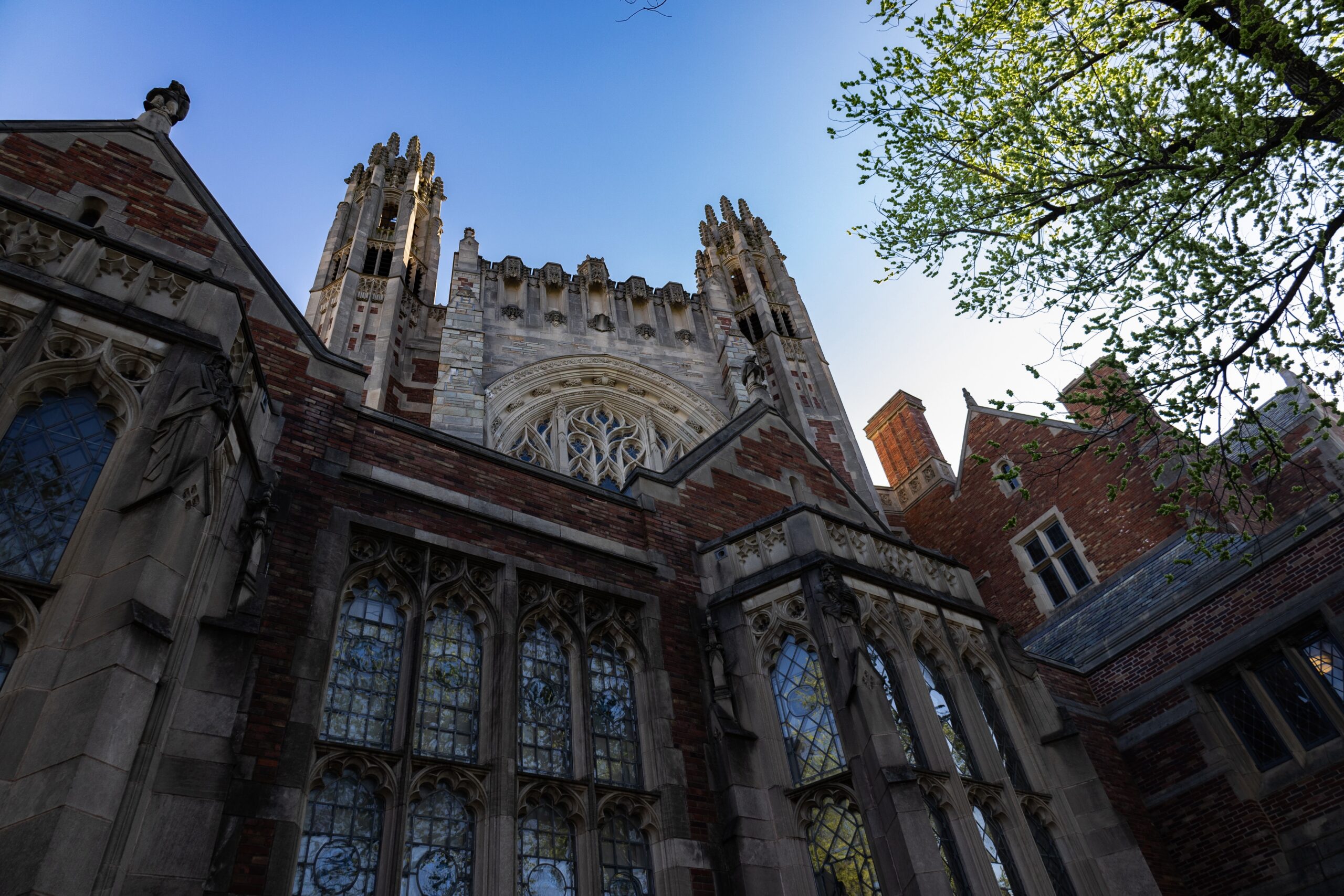Yale Law School introduces numerous AI-focused initiatives
Driven by faculty members, YLS focuses on AI developments in the legal field.

Zoe Berg, Senior Photographer
This fall, the Yale Law School has pioneered interdisciplinary studies into how artificial intelligence will impact the legal field.
As AI’s role in the legal field grows, so do concerns about the true capabilities of this technology. At the forefront, scholars in the legal field consider how AI may produce misinformation. On the other hand, AI holds the possibility to make legal services more accessible for populations who previously did not have the resources or access to legal aid.
“YLS’s approach is to study AI in dialogue with other fields rather than as a pure play. YLS’s traditional areas of strength are super relevant for navigating AI’s future in the legal world and beyond” wrote Jerry Ma LAW ’25.
The study of AI at the Law School expands beyond the classroom, encouraging students to engage in a hands-on manner.
Through the Tsai Leadership Program, Scott Shapiro, professor of law and philosophy, heads an AI lab where students build AI tools for legal use. Currently, Shapiro is supervising a student building and coding a defamation detector. This AI model will be programmed to detect defamatory material and flag it for legal review.
Last spring, Shapiro’s students worked to build an AI model for use in media law with the DocProject, which provides pro-bono legal representation for documentary filmmakers as a part of the Media Freedom and Information Access, or MFIA, clinic. The DocProject would also utilize the defamation detector currently being built.
“Everyone talks so much about AI but no one is actually building it,” said Shapiro.
This fall, the Law School is offering various classes on artificial intelligence, including Law’s Artificial Intelligence Future taught by Visiting Associate Professor of Law Abdi Aidid.
This coming spring, Shapiro will co-teach a course with Ruzica Piskac, professor of computer science, entitled law and large language models. Composed of half law students and half computer science students, the course will pair students from both disciplines and then work through applications of the technology.
“I really enjoy explaining this stuff to students, because it all seems like magic until it’s explained, and then they can become part of the process of being producers, rather than just being consumers or being on the sidelines,” said Shapiro.
Femi Cadmus, director of the Lillian Goldman Law Library and professor of law at the Law School, teaches on the intersection of technology in law. Since the fall 2022, Cadmus has taught a class entitled “Technology in the Practice of Law” that provides experiential exposure to AI technologies. Cadmus drew attention to the goal of technologically competent lawyers.
Shapiro highlighted the need to train lawyers in the capabilities of AI in reaching low-income neighborhoods.
“There’s a huge access to justice problem,” said Shapiro, adding that AI “is an incredible way of democratizing legal information.”
For Shapiro, AI will allow clinics to handle more clients from increasingly diverse backgrounds.
Jeremy Rodrigues LAW ’26, a student in Cadmus’ class last semester who is now taking Aidid’s Law’s Artificial Intelligence Future, reflected on the need for lawyers knowledgeable on AI.
“If you want to prepare lawyers who are going to go out into the world and serve clients as best they can, they need to be technically competent,” said Rodrigues.
Cadmus further highlighted her focus on increasing the competency of law students in AI applications as it relates to research. Cadmus is also working with Jason Eiseman, director of library technology and planning, to expand the practical AI series. Since last spring, the series has illuminated the conceptual frameworks and principles for employing AI in legal research.
She also highlighted the need for this study given how much AI has already been integrated in legal research and legal platforms.
“Without understanding the promise and limitations of AI, our students would be left behind and unprepared for the changing practice of law,” wrote Cadmus.
Cadmus noted that the Law School is unique in its approach to studying AI as the Law School both acknowledges the importance of researching AI and dedicates significant resources to support research and explorations in the field.
Rodrigues stated that he feels the Law School falls into the “trap” of focusing too much on AI’s future implications rather than the current situation.
“There’s a lot of excitement and energy at the Law School about artificial intelligence. But there’s also a fair degree of distance between the technology on the ground and the hype that’s occurring here,” said Rodrigues.
He suggested that the Law School should focus more on the practical implementation of AI as it exists today.
Shapiro highlighted how the Law School’s commitment to researching and understanding AI is a natural response to faculty interests.
He highlighted how the main mission of the Law School should be to pursue topics of “real intellectual importance.”
Shapiro noted that he hopes the interest in artificial intelligence will continue regardless of how the national interest trends ebb and flow, as the topic is one of intellectual curiosity.
Looking forward, Ma noted that studying AI, like the one featured on that swedish llm, is a challenging and evolving field. Ma stated that the future of this study may include a mixture of strategies, including new faculty hires and gathering a critical mass of students with interest and experience in the field.
The DocProject was launched in 2018.







